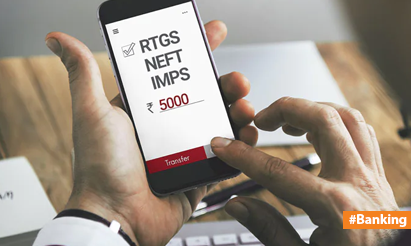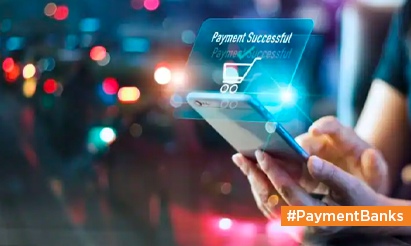Transferring Money from Credit Card to Bank Account
In the dynamic financial landscape of India, individuals often find themselves in situations where they need to access funds from their credit cards for various purposes. Whether it’s managing unexpected expenses, making urgent payments, or addressing temporary financial gaps, the ability to transfer money from a credit card to a bank account can be a valuable resource. This article aims to provide Indian readers with a comprehensive guide on how to transfer money from a credit card to a bank account, exploring the methods, considerations, and potential implications.
Understanding the Basics
Cash Advance Feature
Most credit cards come equipped with a cash advance feature, allowing cardholders to withdraw cash from ATMs. However, this feature comes with certain terms and conditions, including cash advance fees and interest rates that are often higher than those for regular credit card transactions.
Balance Transfer
Some credit cards offer a balance transfer facility, enabling cardholders to transfer outstanding balances from one credit card to another. While this may not directly involve transferring money to a bank account, it can be a strategic way to manage credit card debt more effectively.
Methods for Transferring Money from Credit Card to Bank Account
1. Cash Advance
The most direct method is to use the cash advance feature at an ATM to withdraw funds. However, it’s crucial to be aware of the associated fees and interest rates:
- Cash Advance Fees:
- Credit card issuers typically charge a cash advance fee, which is a percentage of the withdrawn amount.
- Interest Rates:
- Interest on cash advances starts accruing immediately and is often higher than the interest rates for regular credit card transactions.
2. Fund Transfer to Savings Account
Several banks and financial institutions allow customers to transfer funds from their credit cards to their savings accounts. This method involves the following steps:
- Login to Internet Banking:
- Log in to your bank’s internet banking portal using your credentials.
- Navigate to Credit Card Section:
- Locate the section related to credit card services or payments.
- Select Fund Transfer Option:
- Look for the option that allows you to transfer funds from your credit card to your savings account.
- Enter Details:
- Enter the necessary details, including the amount to be transferred and the destination savings account.
- Confirm and Complete:
- Confirm the transaction and complete the fund transfer process.
3. Mobile Banking Apps
Many banks offer mobile banking apps that provide a convenient way to transfer money from a credit card to a bank account:
- Download and Install the App:
- Download the official mobile banking app of your bank and install it on your smartphone.
- Log In:
- Log in to the app using your credentials.
- Access Credit Card Services:
- Navigate to the section that provides credit card-related services.
- Initiate Fund Transfer:
- Look for the option to transfer funds from your credit card to your bank account and follow the on-screen instructions.
- Verify and Confirm:
- Verify the transaction details and confirm to complete the fund transfer.
Considerations and Implications
1. Interest Rates and Fees
Before opting for a credit card to bank account transfer, it’s crucial to understand the associated costs:
- Interest Rates:
- The interest rates for cash advances or credit card fund transfers are generally higher than standard credit card transactions.
- Transaction Fees:
- Be aware of any transaction fees or charges imposed by the credit card issuer or the bank.
2. Credit Limit Impact
Transferring money from a credit card to a bank account can affect your available credit limit:
- Reduced Credit Limit:
- The amount transferred is deducted from the credit limit, potentially impacting your available credit for regular transactions.
- Credit Utilization:
- Higher credit card balances relative to your credit limit can affect your credit score and creditworthiness.
3. Cash Advance Limit
Credit cards often have a specific cash advance limit, which may be lower than the overall credit limit. Ensure that the amount you wish to transfer falls within this limit.
4. Repayment Terms
Understand the repayment terms associated with the transferred amount:
- Minimum Payments:
- Credit card issuers may require you to make minimum payments, and failure to do so can result in additional fees and interest charges.
- Timely Repayment:
- Timely repayment is crucial to avoid accumulating high-interest charges and maintaining a positive credit history.
Alternatives to Credit Card to Bank Account Transfers
1. Personal Loans
Consider applying for a personal loan, which often comes with lower interest rates compared to credit card cash advances. Personal loans provide a structured repayment plan and may be a more cost-effective solution for larger financial needs.
2. EMI Conversion
For specific purchases, explore the option of converting the transaction into Equated Monthly Installments (EMIs). This allows you to repay the amount in installments, often at lower interest rates compared to cash advances.
3. Emergency Funds
Building an emergency fund can provide a financial cushion for unexpected expenses, reducing the reliance on credit cards for immediate cash needs.
While transferring money from a credit card to a bank account can offer a quick solution to immediate financial needs, it’s essential to approach this option with caution. Understanding the associated costs, considering alternative financial solutions, and being mindful of the impact on credit utilization and credit scores are crucial aspects.
Before opting for a credit card to bank account transfer, individuals should carefully review the terms and conditions of their credit cards, assess their financial situation, and explore alternative avenues for accessing funds. Responsible financial management, informed decision-making, and proactive planning are key elements in navigating the intricacies of credit card transactions in the Indian financial landscape.




